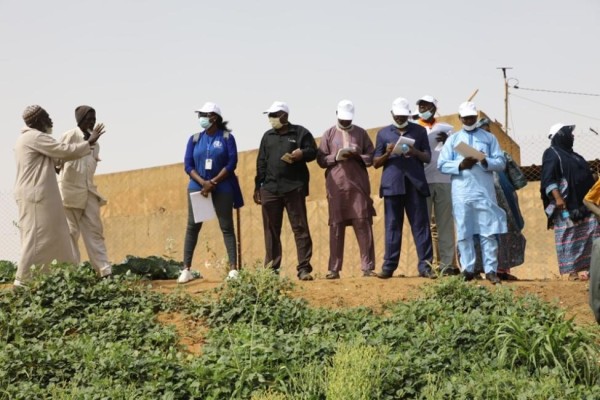Repository of Practices

Training for Policy Makers and Practitioners on Migration, Environment, Climate Change and Adaptation
Secondary GCM Objectives
Dates
Type of practice
Geographic scope
Geographic Scope:
Summary
Environmental factors have long had an impact on global migration flows, as people have historically left places with harsh or deteriorating conditions. However, the scale of such flows, both internal and cross-border, is expected to rise as a result of accelerated climate change, with unprecedented impacts on lives and livelihoods. Such migration can have positive and negative effects on both the local coping capacity and the environment in areas from which these migrants originate, as well as in their temporary or permanent destinations. The impacts of these changes and the associated mobility dynamics vary from one region to another. IOM capacity building activities aim to: (1) build the capacity of policymakers and practitioners in order to factor migration into environmental and development policies, as well as climate change adaptation strategies, and to take environmental change into account in comprehensive migration management policies at the national level; (2) facilitate policy exchange in migration, environment and climate change among policymakers and practitioners. These capacity building activities are in line with Paragraph 14(f) of the Cancun Adaptation Framework, which first brought the notion of human mobility to international climate negotiations, the Paris Agreement and COP21 Decision, and the Marrakesh Accords on Capacity Building in developing countries (Decision 2/CP.7). The IOM capacity building activities contribute to the formulation of policies on human mobility in the context of environment and climate change. To support these activities, IOM has developed a comprehensive interactive training tool - Migration, Environment and Climate Change: Training Manual (Facilitator’s Guide). Between 2020-2021, IOM programming on climate change and risk reduction trained over 85,000 community members, 7,000 government officials and 3,000 civil society representatives.
Organizations
Main Implementing Organization(s)
Detailed Information
Partner/Donor Organizations
Benefit and Impact
Key Lessons
Recommendations(if the practice is to be replicated)
Innovation
To give a recent example: as part of the IOM-UNDP Seed Funding, RO Vienna MECC conducted an online training from 8-10 December 2022 for 20 representatives of local and national authorities in partnership with the Academy of Public Administration under the President of Kazakhstan. Two in-person MECC and Diaspora trainings were conducted in Kyrgyzstan on 4-6 July 2022 for 31 participants and from 15-16 September 2022 for 18 participants from national ministries and relevant organizations. In Tajikistan, a MECC capacity development training was conducted from 20-21 October 2022 for 15 participants from partner national ministries and agencies. A MECC training was also conducted in Moldova on 15 and 17 March 2023 for 12 technical experts from relevant sectoral government entities. Recently, a MECC capacity development training was conducted in Uzbekistan from 17-18 July 2023 for 12 participants from relevant government ministries and agencies.
Additional Resources
Additional Images
Date submitted:
Disclaimer: The content of this practice reflects the views of the implementers and does not necessarily reflect the views of the United Nations, the United Nations Network on Migration, and its members.
More Related Practices:
- Strengthening the capacities and frameworks to collect data and evidence on migration, the environment and climate change (MECC) in Mexico
- IOM Engages Youth on Benefits of Migration at the 13th African Games in Accra, Ghana
- CLIMB Database
- Seguro Integral de Salud (SIS) – Protección financiera en Salud para peruanos y extranjeros residentes en el Perú
- Instituto Nacional Penitenciario | “Interno Universitario y Estudiando sin Fronteras”
Peer Reviewer Feedback:
*References to Kosovo shall be understood to be in the context of United Nations Security Council resolution 1244 (1999).
Newsletter
Subscribe to our newsletter.





